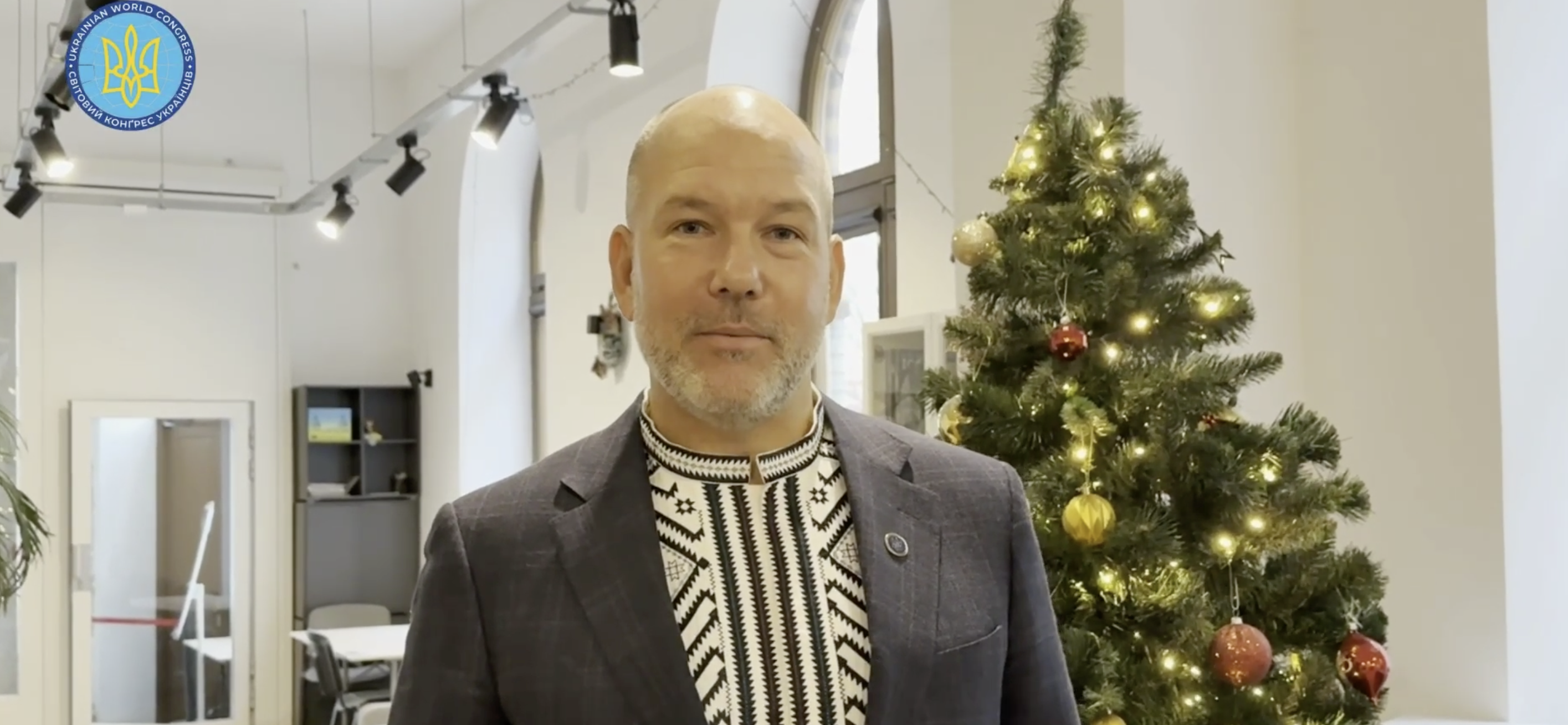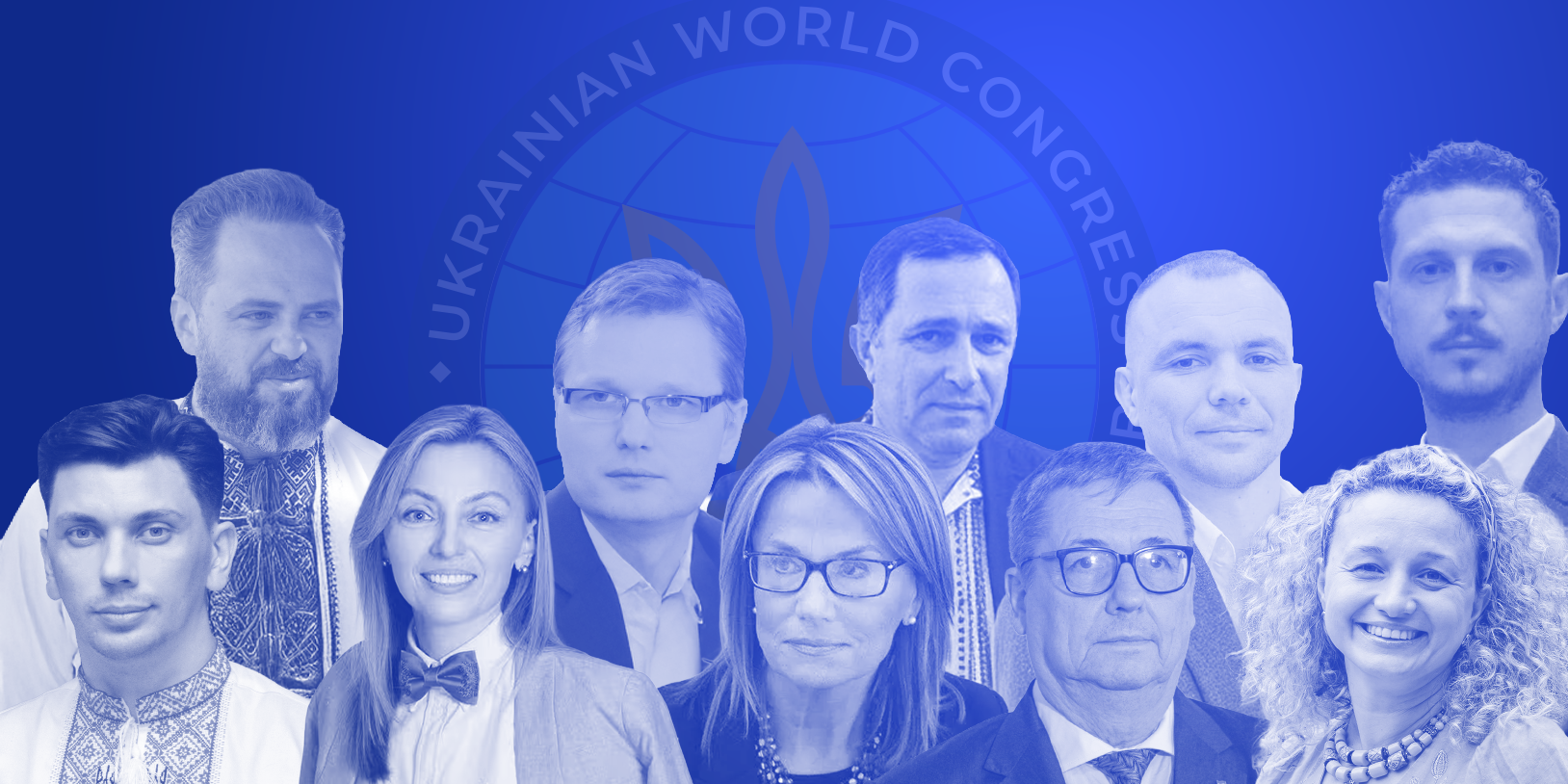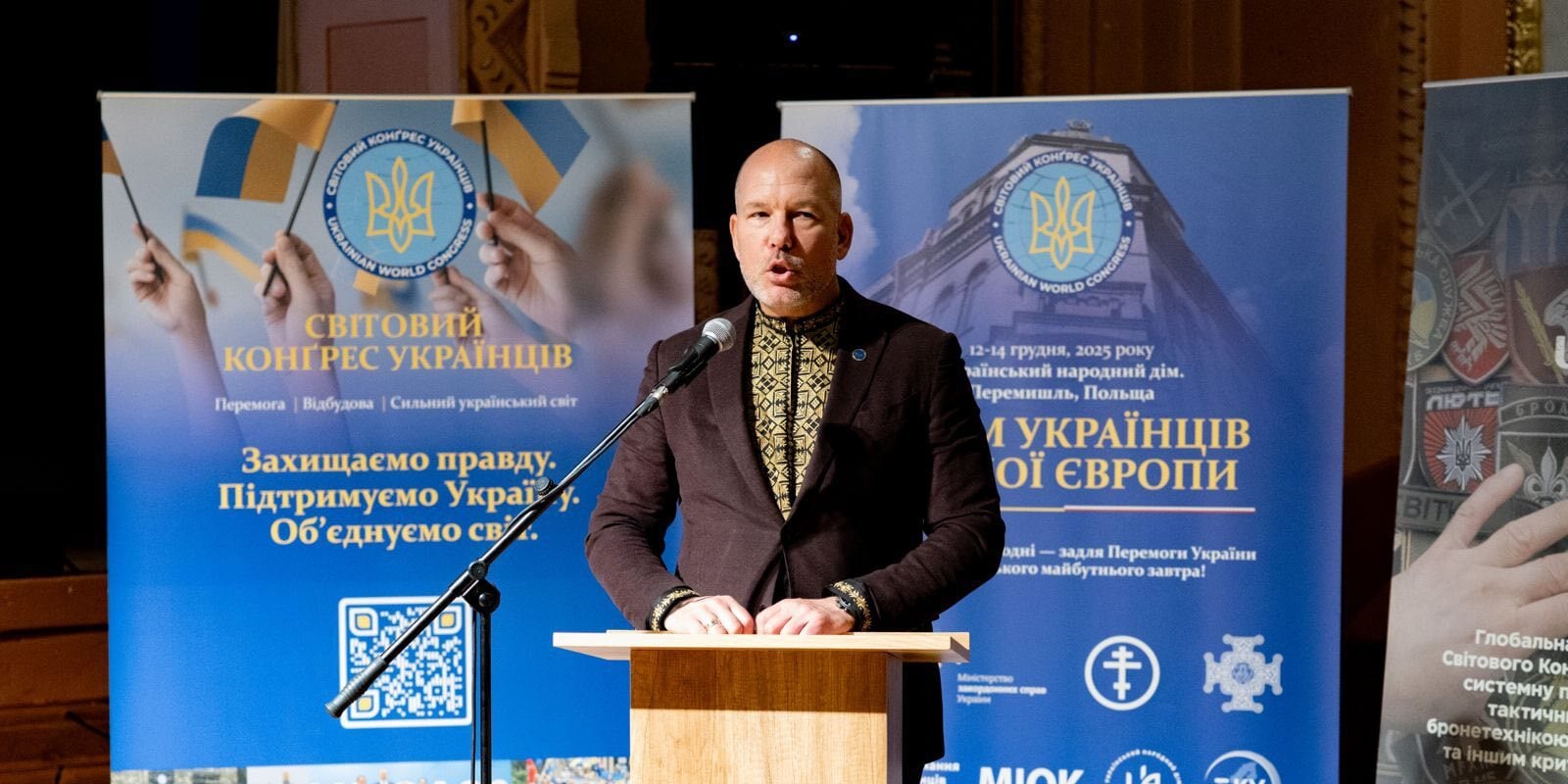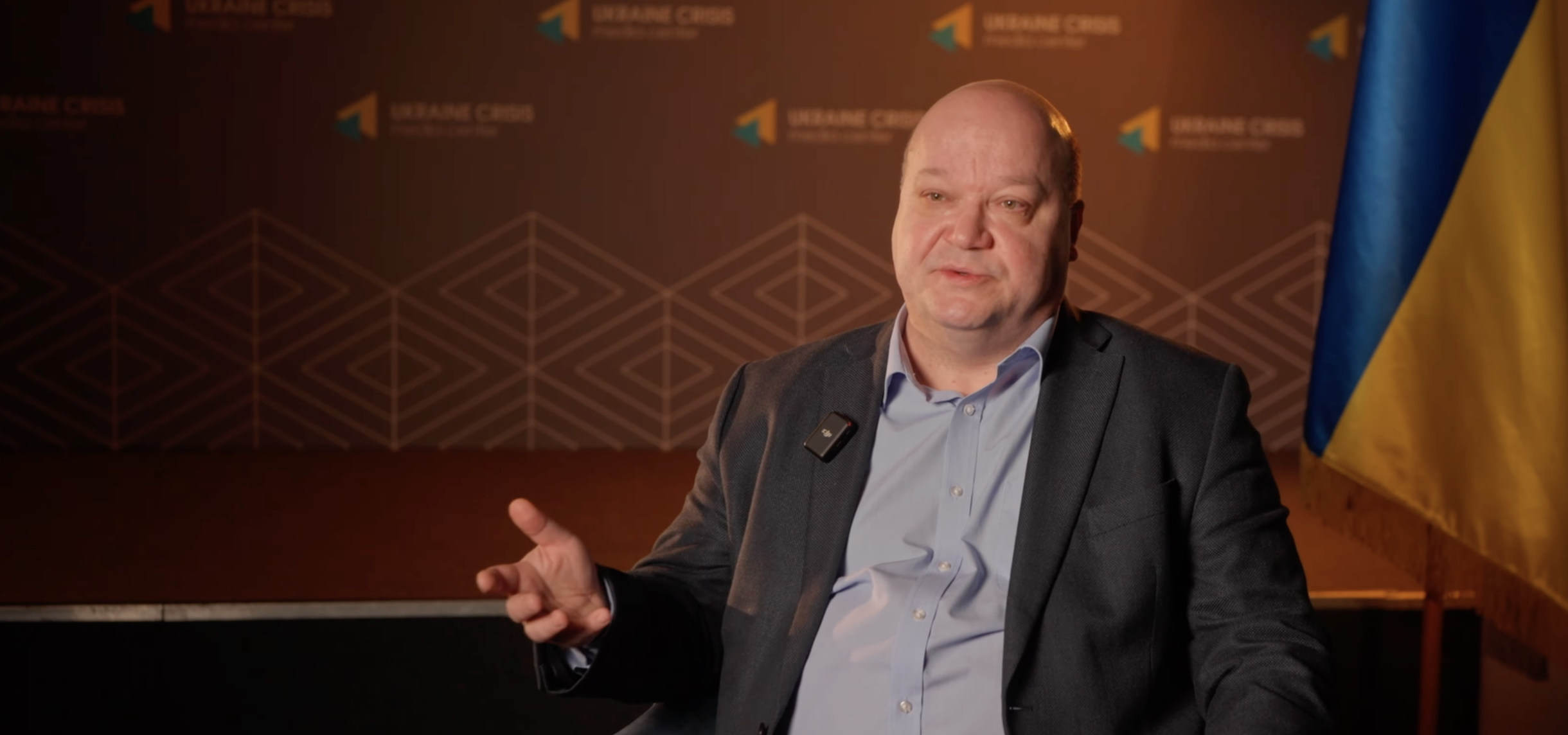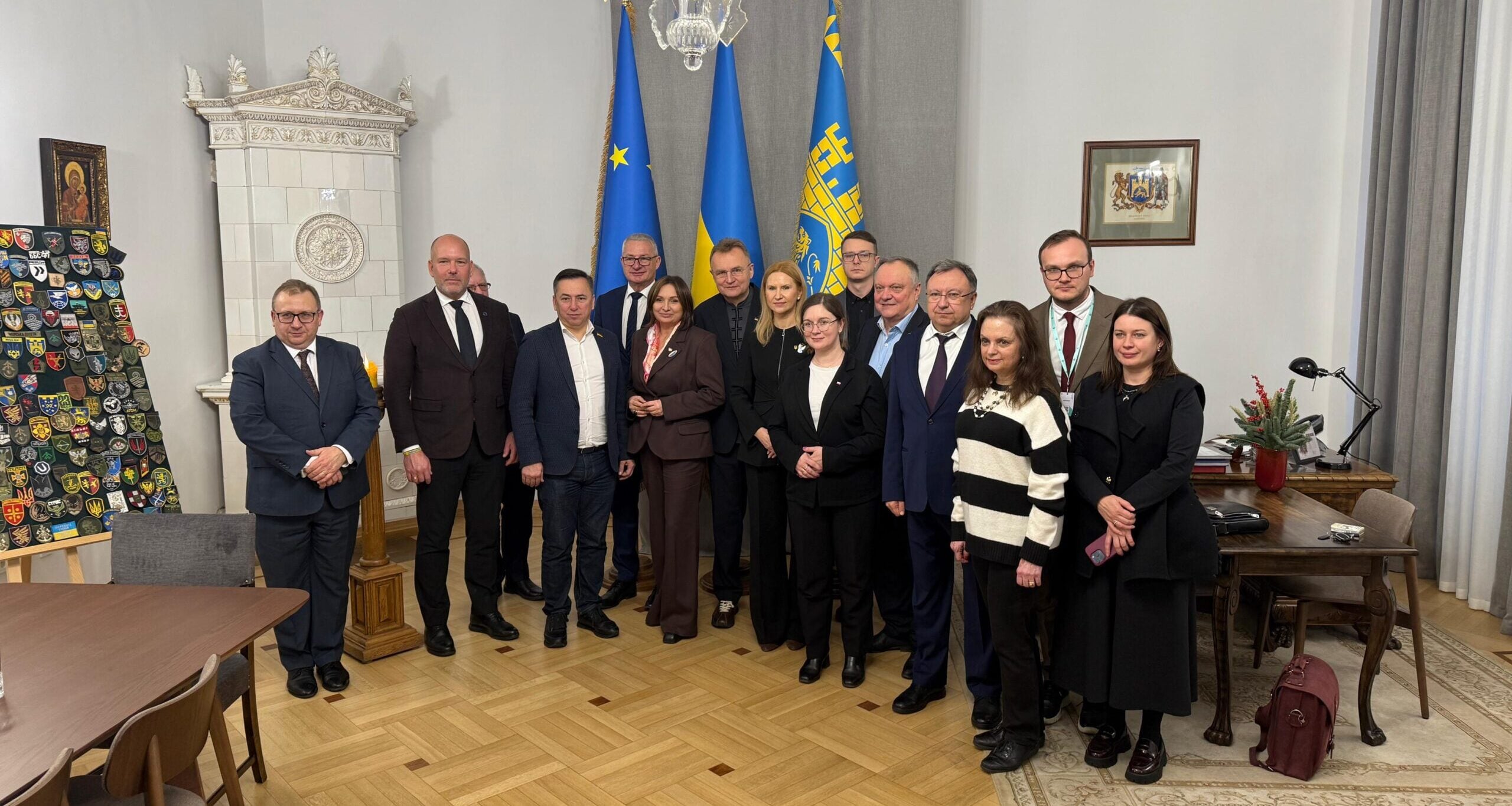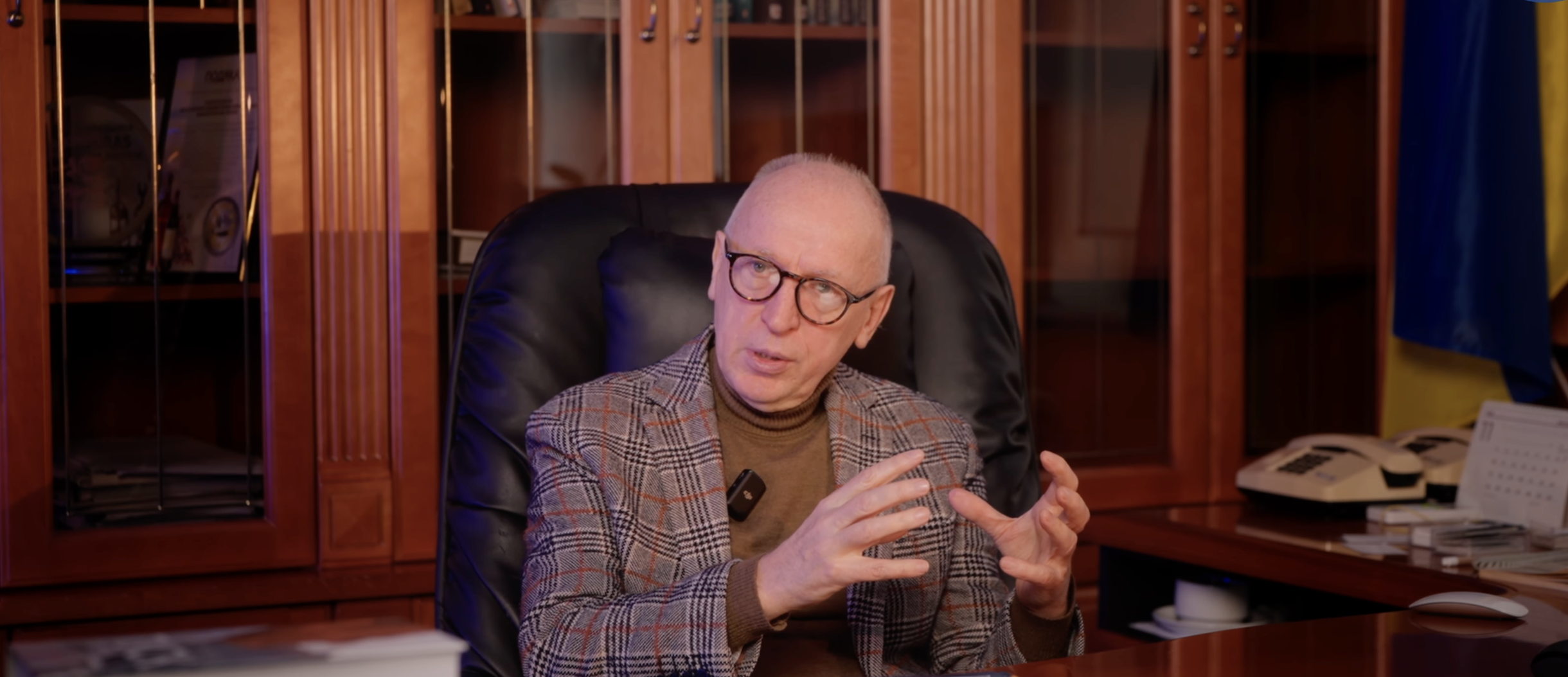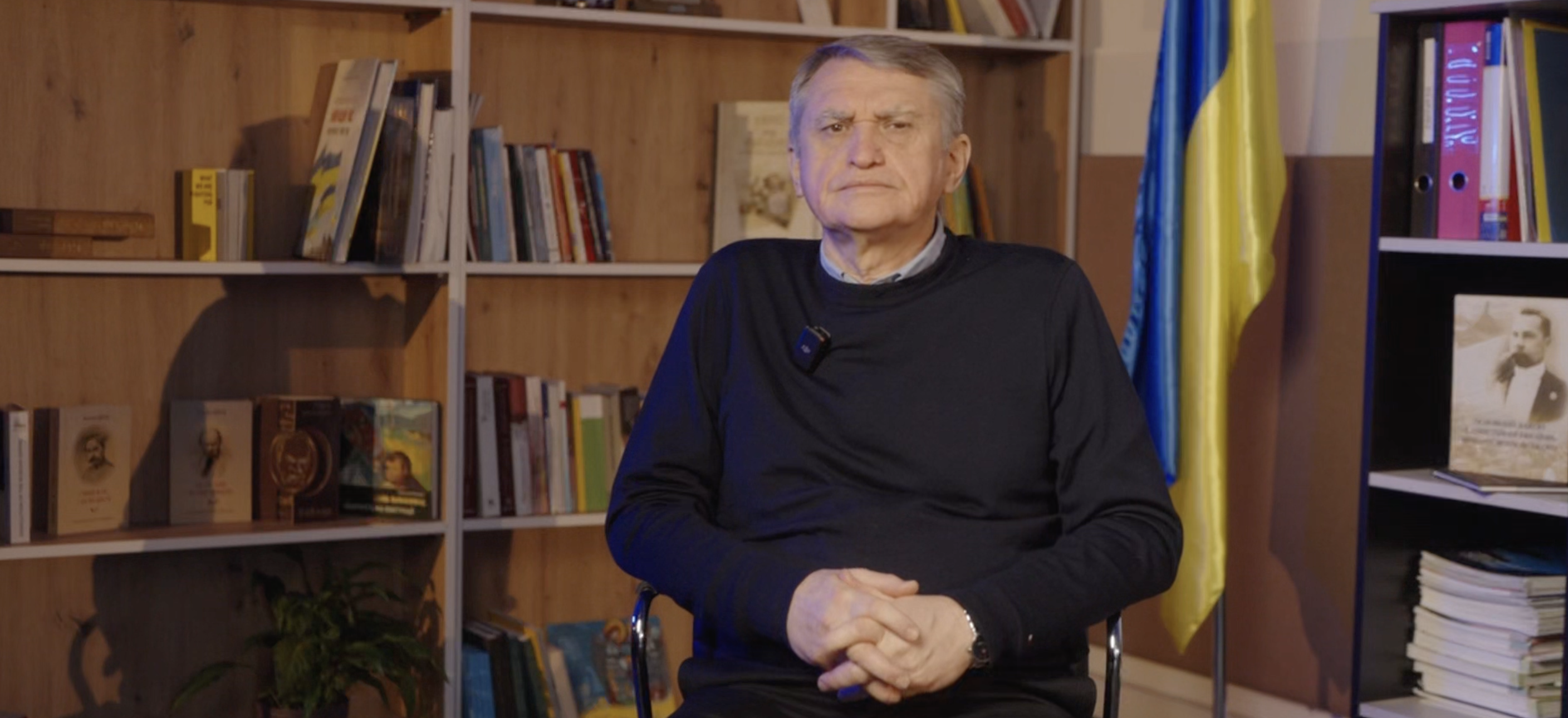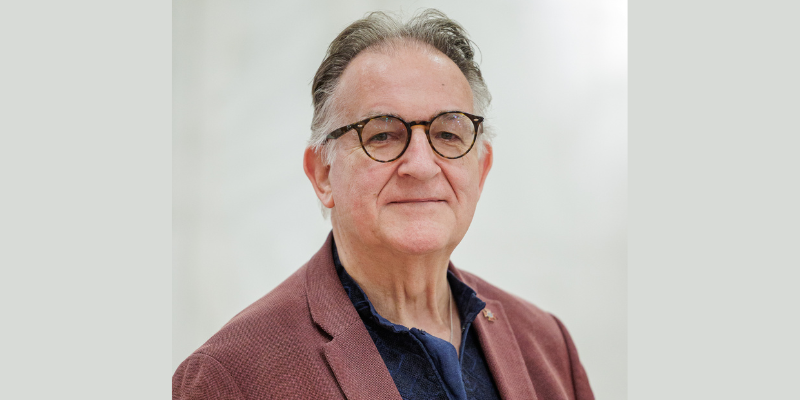
The Ukrainian World Congress publishes a slightly abridged version of a speech by Zenon Kowal, a member of the UWC Executive Committee, political adviser to the European Congress of Ukrainians and the Association of Ukrainians in Belgium, as well as former special adviser to the Embassy of Ukraine in Belgium (1992-1995), at the session of the European section of the Parliamentary Assembly of the Francophonie. The event took place on Nov. 12-13 in Pristina, Kosovo.
The first words that come to mind when discussing Russia’s invasion of Ukraine and the international reaction are “too little and too late.” One could also add “many promises, too little realization.”
Speaking of “too little, too late,” it is worth recalling that on Feb. 23, 2022, the eve of Russia’s large-scale aggression against Ukraine, very few people, even in high positions, believed that Russia would attack Ukraine, except for a few well-informed circles.
Western democracies generally viewed Russians as reliable and trustworthy partners, especially in economic and commercial terms.
Implicitly, they adhered to the “post-Yalta” principle of spheres of influence, without paying much attention to the challenges posed by the fall of the Berlin Wall (nearly 35 years ago), the collapse of the USSR, and the emergence of 15 republics seeking integration into the global community.
In Ukraine, which for decades had been lulled by Soviet-Russian propaganda with slogans of so-called “brotherly peoples,” few dared imagine a direct attack from Russia, despite the destabilization of the Donbas and the annexation of Crimea in 2014 following President Viktor Yanukovych’s fall and flight to Russia, caused by the Revolution of Dignity and the mass protests on Kyiv’s Independence Square.
Ukraine was the first to awaken. Its president, Volodymyr Zelenskyy, previously known primarily as a comedian, revealed a completely different side. When the Americans offered him evacuation, he responded in Churchillian fashion: “I need ammunition, not a ride.”
The unexpected and ingenious resistance of Ukrainians first sparked surprise, then admiration, and finally the support of many democracies. This astonishment also struck Russia, which expected to capture Ukraine in a matter of days. In the soldiers’ packs from the northern front, parade uniforms were found, intended for a victory celebration on Khreshchatyk Street, Kyiv’s main thoroughfare.
However, the support from democratic nations remained measured and limited by fears of being drawn into a conflict for which no one was prepared. Beyond the conflict itself, there were fears of escalation – memories of Moscow’s “red lines” still linger, lines that achieved little other than slowing the flow of aid to Ukraine.
One might recall the futile debate over defensive versus offensive weapons, and then lethal versus non-lethal weapons – though truly, can one name a non-lethal weapon?
There was hesitation for a long time over supplying Ukraine with anti-aircraft Stingers, tanks, and planes, which were eventually delivered. Had significant aid been provided to Ukraine from the start of Russia’s large-scale aggression, Russian forces could have been repelled, preventing them from fortifying the territories they captured. The scenario would have been entirely different.
Meanwhile, Russia did not hesitate to use all weapons at its disposal, except for nuclear arms, which it brandished as a tool of ultimate blackmail and deterrence. Moreover, it consolidated its positions in the conquered territories.
As for unfulfilled promises, one must first mention the 1994 Budapest Memorandum.
Ukraine, at the time the third-largest nuclear power in the world, surrendered its entire nuclear arsenal to Russia in exchange for guarantees of sovereignty, territorial integrity, and security from the signatory powers (the United States, Russia, and the United Kingdom, with separate declarations from France and China). Considering what has happened to Ukraine, what other state today would be willing to relinquish its nuclear arsenal based on promises that have proven meaningless at the first sign of trouble?
Continuing with broken promises, Europe quickly realized it lacked the capacity to produce and supply the necessary volume of equipment and ammunition for Ukraine to defend itself against what was then considered the second-strongest army in the world.
Furthermore, democracies are inherently more vulnerable than totalitarian regimes: they are accountable to their citizens, subject to electoral processes, and exposed to opposing viewpoints. A democracy that does not defend its fundamental values is doomed to disappear.
After over 30 years of enjoying the dividends of peace, during which defense investments were largely neglected, Europe awakened in a state of destabilization and disbelief. Yet, crises often compel Europe to reorganize and advance.
We are witnessing a radical shift in Germany’s defense policy, the accession of Finland and Sweden to NATO – described by President Macron as “brain-dead” not long ago – and the EU’s remobilization. Today, the European Commission even has a dedicated Commissioner for Defense and Space.
And yet, the warning signs were there: the two Chechen wars (1994–1996 and 1999–2009), the war in Georgia in 2008, the invasion of Crimea, and the infiltration of Donbas in 2014 – all with minimal response from global democracies.
Simultaneously, Russia pursued its “Russkiy Mir” (Russian World) agenda. In June 2007, the “Russkiy Mir” Foundation was established to promote Russian language and culture worldwide. In September 2008, “Rossotrudnichestvo” was created as a state agency to manage cultural exchanges and foreign aid, particularly in Latin America and Africa. This was followed by the launch of the international TV channel “Russia Today” in April 2005 and the multimedia news agency “Sputnik” in November 2014.
The Gerasimov Doctrine
It is notable that these institutions were created shortly before or after the Russo-Georgian war (Aug. 7–16, 2008) and in the aftermath of Ukraine’s 2004 Orange Revolution. Expanding our analysis, these developments align with the Russian military doctrine of December 2014, commonly referred to as the “Gerasimov Doctrine.”
In an article preceding the 2014 Moscow Conference on International Security, Gen. Valery Gerasimov argued that sociopolitical evolution enabled “color revolutions,” fundamentally altering the nature of armed conflicts. He concluded that “the very rules of war have changed.”
According to him, the locus of state power is no longer its armed forces but the dissenting potential of its population. In modern conflicts, military action is secondary to political, economic, informational, and humanitarian measures, all coordinated with internal dissent. Armed forces are deployed openly only at the final stage to consolidate success.
This hybrid warfare approach, firmly embedded in Russian institutions, involves infiltration, cyberattacks, destabilization, and, if necessary, armed intervention.
The objective: Ukraine – or more?
To understand how to end the war, we must examine Russia’s stated objectives and whether they have been achieved – or can be prevented.
On April. 4, 2022, RIA Novosti published an op-ed by Timofey Sergeytsev, outlining the concept of “denazification,” used by Putin to justify his aggression.
This text clearly reveals for the first time that the war initiated by Putin is not only aimed at Ukraine but also at the very foundation of European and Western values: “The collective West is the creator, source, and sponsor of Ukrainian Nazism… Denazification will inevitably lead to de-Ukrainization… The denazification of Ukraine is also its inevitable de-Europeanization. Not only will Nazi Ukraine be eradicated, but, above all, Western totalitarianism… and the mechanisms of subordination to the Western superpower, the United States, will be dismantled.”
For Russia, this is truly a European war – or rather, a war against Europe. In Europe, however, there is often a tendency to claim that Europe is not at war with Russia but is simply supporting Ukraine in its legitimate struggle against Russian aggression. Meanwhile, Russia is waging war against Europe.
The narrative that Ukraine is “Nazi” is clearly baseless. Which Nazi state would elect a Jewish president and have a Jewish prime minister? Furthermore, the far-right party in Ukraine received less than 3 percent in the last parliamentary elections – this is far removed from similar movements in some European countries, often supported by Russia. Is Ukraine really a Nazi state? Really?
Stopping the war
The question everyone asks is: How can this war end?
If Ukraine stops fighting, Ukraine will cease to exist. If Putin stops fighting, the war will end.
The aggressor can end the war either by achieving its objectives or being forced to stop. If Russia does not relent voluntarily, it must be compelled through military means, sanctions, and political-diplomatic pressure – or a combination of all three.
- Military means:
So, either we help Ukraine restore its territories within internationally recognized borders, including Crimea and the Donbas (Luhansk and Donetsk regions). In doing so, we uphold the international order established after World War II. Democratic states do not lose their credibility in the eyes of the world, proving that they can protect a democratic nation from an aggressor, even if that aggressor possesses nuclear weapons. Otherwise, we open the door to a series of potential conflicts where the law of the stronger will prevail.
- Sanctions:
The path of sanctions and their gradual intensification is crucial, although it requires time and ongoing monitoring to prevent evasion. Russia often spreads narratives claiming that sanctions have no impact on it and only harm those who impose them. If this were really true, why then is Russia seeking assistance from Iran, North Korea, or, occasionally, China?
- Politics and diplomacy:
Politics and diplomacy are inevitably tied to any resolution of the war – either through capitulation or by freezing the war.
- For Ukraine
If international support wanes, much will depend on the stance of the new U.S. administration under President-elect Donald Trump or on the European Union’s ability to step up if American arms supplies slow or cease.
In such a scenario, negotiations will likely begin with Ukraine in a weakened position, unable to reclaim 20 percent of its territory. Condemning Russian aggression or securing compensation will become nearly impossible.
Would the security guarantees offered to Ukraine, such as EU membership and the freezing of any NATO accession applications, be sufficient if Russia is not held accountable, as Germany and Japan were after World War II? Who can guarantee that, after a few years of relative peace—especially if sanctions are lifted and relations return to “business as usual”—Russia won’t attempt to finalize its occupation of Ukraine or even escalate its aggression against the “collective West,” which it claims is the creator, source, and sponsor of “Ukrainian Nazism”?
- For Russia
If military support for Ukraine, combined with sanctions, becomes unbearable for Russia (deep strikes and over 700,000 Russian casualties), it will seek a way to “save face” and find an exit strategy.
Furthermore, internal unrest within the Russian Federation might escalate due to the rising death toll (remember the mothers’ movement during the Afghan war, which saw around 15,000 Russian casualties). With 89 regions, some of which have borne much heavier burdens than others, Russia could also witness growing tensions or an internal shift if Putin’s inner circle decides to end his influence. After all, who could have predicted the Prigozhin incident at the time? The fragmented and largely suppressed Russian opposition might also play a role in this context.
On the other hand, if American isolationism prevails, Russia could strengthen its presence in Ukraine, continuing to destabilize not only Ukraine but also other democratic countries. By exploiting divisions within NATO and the European Union, and supporting aligned political parties, Russia could deepen its influence and sow further discord.
We are already witnessing some of the outcomes of this work in Hungary and Slovakia, to name just a couple of the most prominent examples.
So, after a thousand days since Russia’s invasion of Ukraine, we have reached a few conclusions, yet many questions remain. Perhaps the coming year will provide more answers.
However, recognizing the challenges and threats that lie ahead, it is up to us to respond and make the necessary decisions. To conclude, I would like to share a quote from Madeleine Riffaud, a distinguished French resistance fighter during World War II, who passed away on November 6 at the age of 98: “No cause is ever lost if you don’t abandon it.”
Thank you for your attention.
Zenon Kowal
Honorary Representative of the French-speaking Governments of Belgium
Parliamentary Assembly of the Francophonie
36th European Section Session
Pristina – Kosovo, Nov. 10–14, 2024
